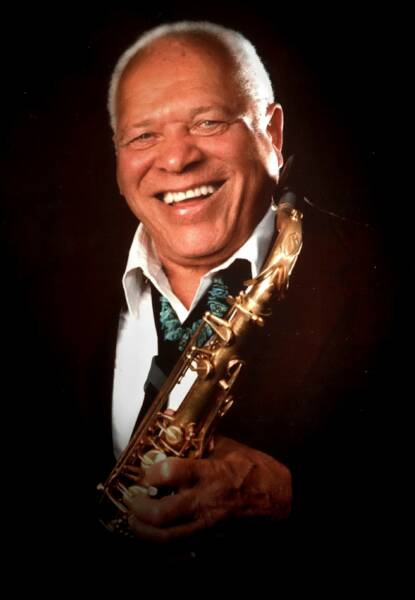New York Times
June 29, 1981
Jazz: Festival Salutes Styles of Chicago
By JOHN S.WILSON
''GOIN' TO CHICAGO,'' a survey of Chicago jazz since the 1920's that was presented at Carnegie Hall on Saturday evening as part of the Kool Jazz Festival, touched most essential bases - the traditional jazz played by young Chicagoans in the 20's, the blues, the hard-driving swing groups of the 1930's and 40's, the post-bop combos of the 1950's and 60's and the avant-garde musicians of the 70's.
There was diversity and skill. But some of the evening's performances traveled a rather rocky road. One difficulty the program may have had was being too good too soon. It opened with a superb set on swing in Chicago led by Cy Touff on bass trumpet, with Norman Murphy on trumpet, Franz Jackson on tenor saxophone, Joe Johnson on piano, Marty Grosz on guitar, Truck Parham on bass and Barrett Deems on drums. The group opened with a loose, driving enthusiasm.
Aside from Mr. Grosz, these were musicians who are rarely heard in New York, and each, to some extent, was a revelation. Mr. Touff, a star in Woody Herman's band in the 1950's, gave the band a distinctive color with a sound very much like a fluent trombone with a little edginess in its tone. Mr. Jackson developed a light dancing solo on ''I Want to Be Happy'' that boiled with excitement.
How do you follow an opening like this? Certainly not the way the producers chose to. They went to the opposite extreme of the musical spectrum to present two representatives of the avant-garde, Roscoe Mitchell on soprano saxophone and Hugh Ragan on trumpet. They played a virtually motionless (certainly nonswinging) duet, consisting of a long sustained, unvarying sound, which might have been a distant, asthmatic train whistle. Long before it had ended, the audience grew restless, and a few initial boos eventually swelled into a barrage of catcalls.
After this, the program had difficulty picking up momentum. The next group, representing Joe Segal's Jazz Showcase and featuring Lee Konitz on alto saxophone and Ira Sullivan on trumpet, received such a bad sound balance that Mr. Konitz could scarcely be heard, and even Mr. Sullivan's trumpet was overshadowed by the amplification of the rhythm section.
But Art Hodes, the veteran blues pianist, got things back on the track with an impeccable development of ''St. Louis Blues,'' which grew, without extraneous flourishes, from a very relaxed, after-hours feeling to stirring, two-handed jump. He also supplied a supporting foundation, with the bassist Truck Parham for the 85-year-old blues singer, Estelle (Mama ) Yancey, a frail-looking woman in a wheelchair whose voice still has the resonance and flexibility to punch out her lines with feeling.
Three of the young white musicians of the 20's who created what became known as Chicago-style jazz were on hand - Jimmy McPar tland and Wild Bill Davison, both cornetists, and Mr. Hodes, all looking vigorous and playing with full-toned assurance - to lead an octet through such tunes from those early days as ''China Boy,'' ''Royal Garden Blues'' and ''Big Butter and Egg Man.''
The evening, which had started out with great swinging enthusiasm, ended in the same fashion, with almost all the instrumentalists massed in an exultant ensemble behind Joe Williams as he sang ''Goin' to Chicago.''
